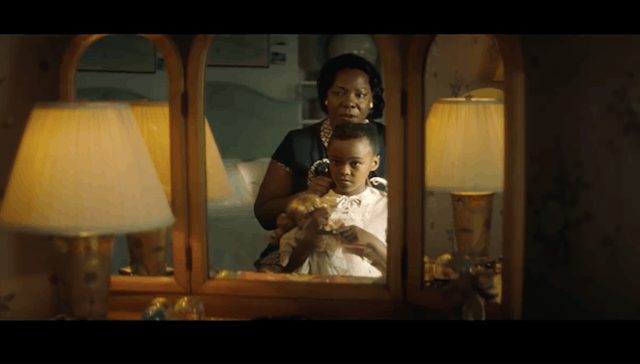Stop Telling Parents Of Black Children That Racism Doesn't Exist

Proctor and Gamble takes on racism in its new ad — and is met with outrage.
Proctor and Gamble has released an ad that’s been met with praise — and also outrage. The two-minute ad depicts black parents — in various times from past to present, and in various stages of their child’s life — addressing the racism they may meet in the outside world with their kids.
The ad is called, “The Talk” — and any parent who’s had to have it or imagines how they will some day need to address it can relate.
It’s been viewed nearly a million times since P&G posted it. It depicts parents counseling their kids through certain scenarios they may experience, or trying to break down racist interactions.
One mom tries to prepare her son for hearing racial slurs.“It’s an ugly, nasty word, and you are going to hear it, nothing I can do about that,” she says. “But you are not going to let that word hurt you, you hear me?” Another mother painstakingly presses her child on how to behave in her car if she’s ever pulled over: “This is not about you getting a ticket. This is about you not coming home.” One mother looks worried as her son heads out to band practice and asks, “Do you have your ID? In case they stop you?”
There are nearly 5,000 comments on the video that P&G shared on their Facebook page — and hundreds of calls to boycott the company. One woman posted a list of all P&G products to show people “what NOT to purchase.” She’s a white woman with an American flag as her cover photo. Another woman chimed in, “I was shocked at how many products of theirs I USED to buy!” Her cover photo says the words, “With God all things are possible.”
So now, we somehow live in the Upside Down, where talking about racism is racist? What is the argument here? Why on earth would people take such offense to a video that depicts real situations that happen in 2017 America?
I wish I could explain, but there is simply no sense here — as evidenced by comments like this:
“What a AWFUL thing to do to sell your products! We are FINALLY overcoming all the racism that our previous president created during the past 8 years, and you publish THAT! Take those 25 steps backwards, while the rest of us try to proceed forward without Obama’s common excuse for everything, pulling the race card. That is truly horrific what you have done! Im through with all my P&G products NOW! Just like we did in January, its time to take out the trash. Your products will be in mine!”
Brain. Exploding.
Recognizing that hate exists doesn’t perpetuate it. Starting a conversation about race isn’t “racist.” Proctor and Gamble has long been progressive in their approach to advertising, and has never shied away from difficult topics. The company’s 10-year-old My Black Is Beautiful campaign tackles racial bias. They’ve also tackled gender bias with campaigns such as Always’ #LikeAGirl and Ariel’s #ShareTheLoad.
“Companies are entering into public conversations about topics they shied away from in past,” Lee Ann Kahlor, associate director of the Stan Richards School of Advertising & Public Relations tells the Washington Post. “I think it is because some organizations want their voice and brand to be distinguishable and apart from the current views espoused by our president and some members of the House and Senate that dominate the media right now.”
As the mother of a black child, let me tell you something; I don’t want you to tell me that you’re “colorblind” or that you “don’t see race.” I want you to acknowledge that my children simply aren’t as safe as yours — and pledge to help change that. I want you to listen to black parents when they tell you they’re terrified. I want you to recognize that child who just got shot for being at a party, or playing with a toy gun, or simply walking alone at night did not deserve to die. I want you to stop taking a call to protect the lives of children as a slight to police officers.
Can you do that? If not, stop saying “you don’t see race.” Not seeing that race impacts the way people move through the world isn’t an enlightened stance. It’s the ultimate in white privilege. And it’s an insult to parents everywhere.
“Let’s all talk about ‘The Talk,'” the ad concludes. “So we can end the need to have it.”
This article was originally published on